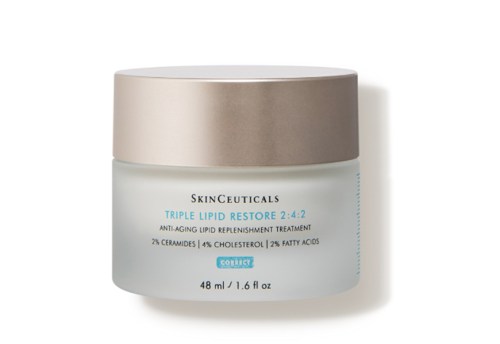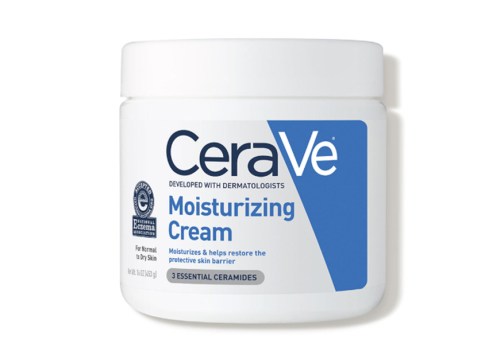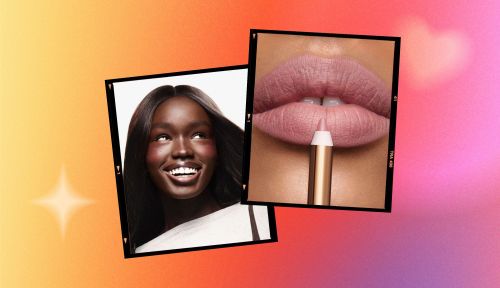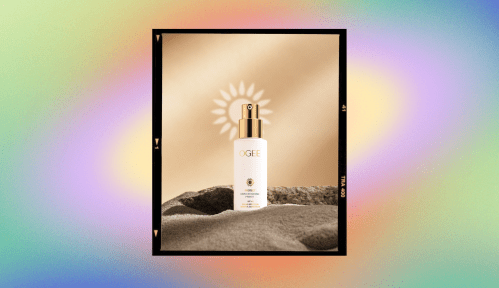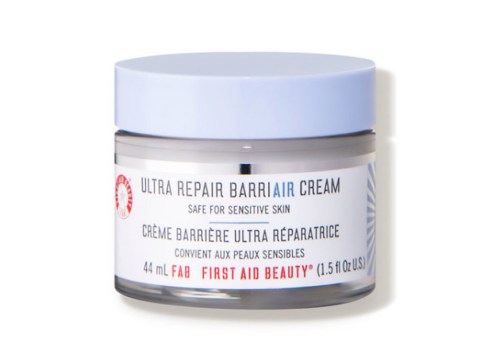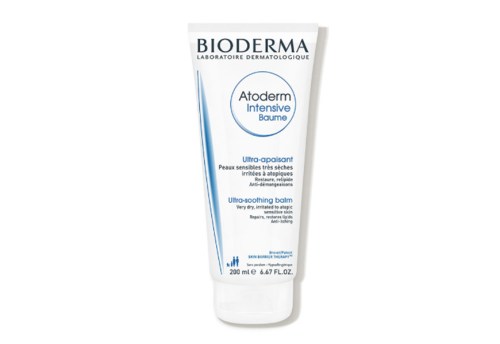Our editors independently select these products. Making a purchase through our links may earn Well+Good a commission
Derms swear by cholesterol (yep, cholesterol!) as a moisturizing hero for skin
Pros reveal that cholesterol in skin is an important part of a hydrating and anti-aging routine. Here, they explain how and why to use it.

In the food world, “good fat” is a regular fixture in conversation. It’s why we accessorize all of our salads (and toasts, and omelettes) with avocado, and load up on salmon on the reg. In the same way that eating fats is an important element of our diets, slathering our skin with the right fats is also crucial for keeping it healthy.
Skin changes as we get older. While we spend a good bit of time talking about the fact that collagen production and cell turnover slow down as we age, we don’t spend as much time focusing on what happens to skin’s hydration. As the years go by, skin’s lipid production also decreases and so we need to supplement it with lipids that are already found within skin to keep it hydrated and strong. Ceramides are the most common skin-similar lipid found in mainstream moisturizers, but as it happens cholesterol (yep, the same stuff we talk about with our food) can also play a big role in keeping skin hydrated and well functioning.
Within the skin, cholesterol, plays a big part in keeping skin looking plump and bouncy. “Cholesterol in the skin decreases as we age,” says board-certified plastic surgeon Manish Shah, MD, noting that most people start to see signs of this occurring in their 30s and 40s. Dryness, dullness, and laxity are all indicators of decreased cholesterol, but you can topically apply it, which will “stabilize the skin, prime the protective barrier, and seal moisture in for better hydration.” While it’s effective when used alone, applying a lipid “trifecta” of cholesterol, ceramides, and fatty acids. “Together, ceramides and cholesterol help hydrate the skin, smooth the outer layer, optimize the epidermis’ protective barrier, and improve elasticity.”
Because ceramides and cholesterol are produced by your body, the skin has an easy time recognizing them when you apply them topically. According to Dr. Shah, supplementing the skin’s stockpile of these lipids at once hydrates and plumps skin, and protects it from chronic dry-skin conditions like eczema and dermatitis all they way to redness. Below, shop cholesterol-spiked skin-care products that will keep your barrier strong and able to fend off whatever comes at it.
Skinceuticals Triple Lipid Restore, $128
With cholesterol, ceramides, and fatty acids, this moisturizer restores skin while you sleep so that you’ll wake up with increased hydration and elasticity. It’s also packed with antioxidants, which means you can use it during the day to protect your skin from the elements, too.
CeraVe Moisturizing Cream, $17
A favorite among derms, this heavy—but never greasy—cream uses cholesterol, ceramides, and hyaluronic acid to reinforce your skin barrier and seal in moisture. At $17, it’s a true drugstore diamond.
Weleda Skin Food Original Ultra-Rich Cream, $19
Whether you’re slathering it on your face or all over you body, the combination of calming and hydrating ingredients will have your skin eating this skin food right up.

Vichy Nutrilogie 2 Intensive Nourishing Moisturizer Cream, $32
Thanks to its ability to sink into skin, this moisturizer keeps your complexion hydrated for 24 full hours. Fans love it for the “baby soft” feeling it leaves behind, sans grease or clogged pores.
First Aid Beauty Ultra Repair BarriAIR Cream, $30
In clinical trials, 92 percent of participants said that this moisturizer delivered “perfect” hydration throughout the day, and it’s been scientifically proven to increase barrier function over time. In addition to ultra-nourishing cholesterol and ceramides, it’s also got vitamin E and colloidal oatmeal to keep skin calm.
Bioderma Atoderm Intensive Balm, $18
For skin that’s extra dry, this cholesterol, ceramides, and vitamin C formula is key. It can be used on your face or your whole body, and will make itchiness and flaking a thing of the past.
Speaking of hydrating ingredients, here are three dermatologists want you to double down on for dry skin, plus one you should avoid at all costs.
Sign up for the Well+Good SHOP Newsletter
Get exclusive deals on wellness, beauty, fitness, and food products that have been hand-picked by our editors.
Got it, you've been added to our email list.
